
 Flash News
Flash News
Morning Post/ In 2 lines: What mattered yesterday in Albania
Gunfire at the Lake Dam in Tirana
Accident in Kukës-Krumë, three injured after two cars collide
The continuation of the constitutive session of the Kosovo Assembly is postponed until tomorrow
They risked their lives on an expedition without a guide, 7 Spanish tourists are rescued in Peshtura
Italy prepares to transfer migrants to Gjadra, including Albanians
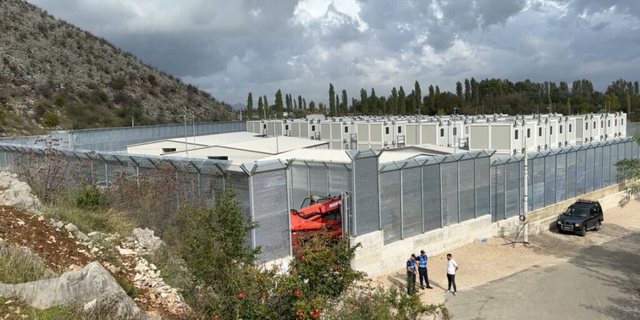
The Italian Interior Ministry is in the final stages of compiling a list of migrants who will be transferred to the Gjadri camp in Albania. Italian media reports that, unlike previous groups, this time they are people who are already in repatriation centers in Italy and are awaiting deportation.
According to published information, the Department of Civil Liberties and Immigration, headed by Prefect Rosanna Rabuano, is selecting immigrants who are considered most suitable to be sent to Albania. The list includes Tunisian, Egyptian, Moroccan, but also Albanian citizens.
If the government in Tirana gives the green light, irregular Albanian migrants could also be transferred to Gjadra. For them, the repatriation process would be simpler and less costly, as they could be released directly on Albanian territory, unlike other citizens who, according to the agreement in force, must return to Italy before leaving for their countries of origin.
The group that arrived in January 2025 constitutes the third and largest contingent to date to be placed in the reception center in Shëngjin. The two previous groups, sent in October and November last year, were turned back due to court decisions that did not confirm the lawful detention of the asylum seekers.
The legal obstacles that accompanied the sending of migrants to Albania are related to the lists of countries of origin. Italian judges rejected the idea of a unified list for the entire European Union, demanding that each country have independent assessments. On December 30, 2024, the Court of Cassation ruled in favor of the Italian government, emphasizing that the designation of safe countries is the competence of the Ministry of Foreign Affairs and executive institutions, and not of the judiciary.
The agreement to build two reception centers for migrants in Gjadra and Shëngjin was signed in 2023 between Italian Prime Minister Giorgia Meloni and Albanian Prime Minister Edi Rama. The main goal was to manage the migratory flow outside Italy's territory, but the project has drawn widespread criticism from international human rights organizations, which see the initiative as a burden-shifting to countries with weaker legal systems and limited resources.
Meanwhile, the Italian opposition has denounced the deal as ineffective and too costly, with a bill reaching 800 million euros over five years. However, the European Commission and some EU leaders have expressed interest in using this model as a precedent for managing migrants outside the union's borders.
Latest news


Horoscope, what do the stars have in store for you?
2025-04-17 08:17:21
Temperatures continue to remain high, weather forecast for this Thursday
2025-04-17 08:02:35
Morning Post/ In 2 lines: What mattered yesterday in Albania
2025-04-17 07:49:39

Rama will avoid taking stock at all costs, Berisha has a substantive campaign
2025-04-16 22:35:34


A cartridge at the scene and one injured, details of the shooting in Tirana
2025-04-16 21:34:33
Prices from Lushnja to Tirana, the trader earns more than the producer
2025-04-16 21:31:15


Berisha: Beketi refused to become Rama's slave, you pay 110 million euros now
2025-04-16 20:51:58
Gunfire at the Lake Dam in Tirana
2025-04-16 20:37:22

Accident in Kukës-Krumë, three injured after two cars collide
2025-04-16 20:25:23
Turkey hosts Black Sea security talks
2025-04-16 20:08:45



Mercury enters Aries on April 16: How it affects each zodiac sign
2025-04-16 19:13:37




BIRN: Tirana's "ghost" incinerator affair deflates in court like a soap bubble
2025-04-16 18:24:13


“450 new schools?” - When the electoral calculations don't add up
2025-04-16 17:17:44

Poll/ Which party do you plan to vote for on May 11?
2025-04-16 16:53:24
Doctors sound the alarm: Heart disease is increasingly affecting young people
2025-04-16 16:50:04
Serious in Germany/ Doctor accused of murdering 15 patients
2025-04-16 16:30:27
Knife fight in Kurbin!, three people injure a 30-year-old man
2025-04-16 16:25:36
Car hits Foreign Ministry official on white lines
2025-04-16 16:10:01


Organized gambling in a bar via mobile phone, 29-year-old arrested in Tirana
2025-04-16 15:36:30
Rama continues attacks on LaCivita
2025-04-16 15:26:41
How Vis Martinaj's 'soldier' and two others tried to eliminate Durim Bami
2025-04-16 15:14:18

Berisha: McGonigal's shadow will follow Edi Rama until the last day of his life
2025-04-16 14:59:55
Eurostat: Inflation in March 2.5% due to higher food prices
2025-04-16 14:50:34
LaCivita: Developments in Albania are being closely followed by the US as well
2025-04-16 14:39:07


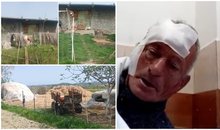

Second file, GJKKO passes on to trial Jorgo Goron
2025-04-16 13:49:04

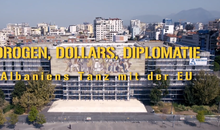


Kosovo is included in the list of countries
2025-04-16 13:12:24
Can a change in mentality save the world?
2025-04-16 13:01:48
Requested revocation of security measure, hearing at GJKKO for Veliaj postponed
2025-04-16 12:52:19

Car hits Foreign Ministry employee, he is taken to Trauma in serious condition
2025-04-16 12:31:31


Berisha meets with tourism associations: This sector is swimming in informality!
2025-04-16 11:59:11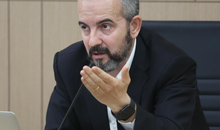


Topalli publishes diaspora message: 3 votes from Germany against the regime
2025-04-16 11:22:13
The director of the Elbasan Waterworks, Luan Tabaku, appears before SPAK
2025-04-16 11:11:21
William Levy arrested, here's what he's accused of
2025-04-16 11:04:15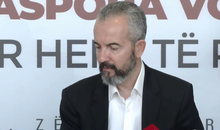

Paloka: Rama is using the state to manipulate the elections
2025-04-16 10:45:09
The electoral machinery: SP directors versus former directors or ordinary people
2025-04-16 10:32:26
Veliaj seeks freedom, hearing at the Special Court takes place today
2025-04-16 10:21:06
How much was LaCivita paid? Mediu: Expenditures are transparent at the CEC
2025-04-16 10:10:19
BKH agents raped, Agron Kapllanaj's two nephews handcuffed (NAMES)
2025-04-16 10:02:49
Gunshot wound in Lushnje
2025-04-16 09:45:14
People who have low emotional intelligence often use four expressions
2025-04-16 09:35:58
The wife of Veliaj's friend appears at SPAK
2025-04-16 09:23:28


Foreign exchange, April 16, 2025
2025-04-16 08:52:11
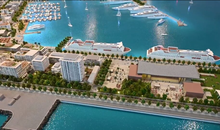

Horoscope, what do the stars have in store for you?
2025-04-16 08:19:42
Temperatures are rising again, here's the weather forecast for today
2025-04-16 08:06:31
Morning Post/ In 2 lines: What mattered yesterday in Albania
2025-04-16 07:53:11




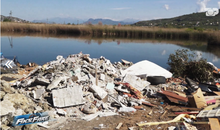


After slapping Gjesti, Jozi "disappears"
2025-04-15 20:45:42
Berisha: Rama will not dare to take the water of the villages of the Vlora River
2025-04-15 20:31:58


A house in Kolonjë is engulfed in flames
2025-04-15 20:06:00



The cry "Rama, go away" interrupts the Prime Minister's speech in Kamëz
2025-04-15 19:20:19
